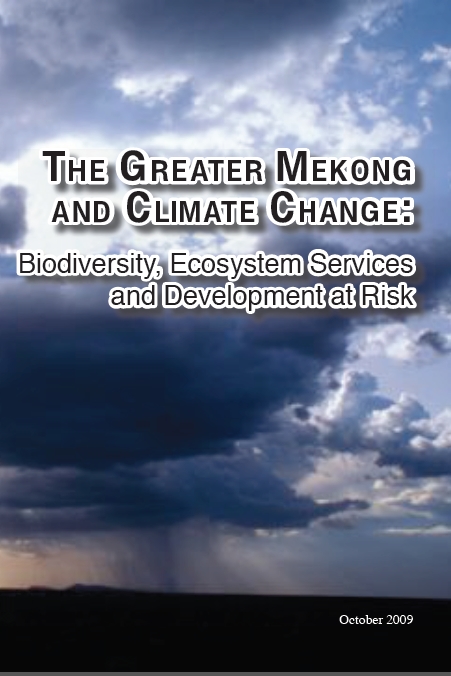
THE GREATER MEKONG AND CLIMATE CHANGE:
Biodiversity, Ecosystem Services and Development at Risk
© John E. Newby / WWF Canon
The Greater Mekong is one of the most vulnerable places on earth to the impacts of climate change. For the Greater Mekong, climate change compounds existing and projected threats affecting the region’s people, biodiversity and natural resources. This is likely to have cascading effects, for example, water scarcity leading to reduced agricultural productivity, leading to food scarcity, unemployment and poverty.
Among lower Mekong Basin countries, Laos and Cambodia are identified as the most vulnerable in part because of their limited capacity to cope with climate related risks (Yusuf and Francisco 2009). In all countries, climate change complicates existing
problems.
The city of Bangkok is sinking by 5-10 mm each year. Land subsidence and groundwater extraction combined with sea level rise could leave Bangkok under 50-100 cm of water by 2025. (UNEP 2009)
Across the region, temperatures are rising and have risen by 0.5 to 1.5ºC in the past 50 years. While rainy seasons may contract over parts of the region, overall rainfall is expected to rise. This means more intense rain events when they occur. More frequent and damaging droughts and floods will cause, and have already caused, extensive damage to property and loss of life. Sea level rise is threatening the region’s coastal communities and ecosystems are becoming more stressed. Glacial melting in the Himalayas may cause impacts to the region’s major river flows and wetlands will either dry up or flood out. These impacts are already occurring to some extent.
The agricultural sector is being significantly affected by changes in climate. Warmer temperatures have contributed to declining crop yields. Storms, floods and droughts are destroying entire harvests.
Prolonged and unpredictable droughts are expected to become more problematic in the future. Water availability in the dry season will decrease and prolonged droughts will cause water shortages. Water scarcity will constrain agricultural production and threaten food security.
The human impact of climate change is devastating and the region’s poorest people are disproportionately affected (Oxfam 2008). Impacts include mortality due to heat waves and increases in the number of cases and geographic shifts in infectious
diseases such as malaria, dengue fever, cholera and hepatitis.
The impacts of climate change are already causing migration and displacement of people, the scope and scale of which could vastly exceed anything that has occurred before.
WWF Greater Mekong Programme
Chulawich 1 Building, 5th Floor
Chulalongkorn University
Henri Dunant Road
Bangkok, 10330, Thailand
Tel. +66 (0)2 218 9463
Fax. +66 (0)2 251 9416
Dr Geoffrey Blate
Climate Change Coordinator
This email address is being protected from spambots. You need JavaScript enabled to view it.
www.panda.org/greatermekong
All other photos are credited to WWF Greater Mekong


































